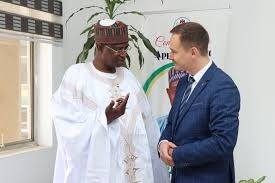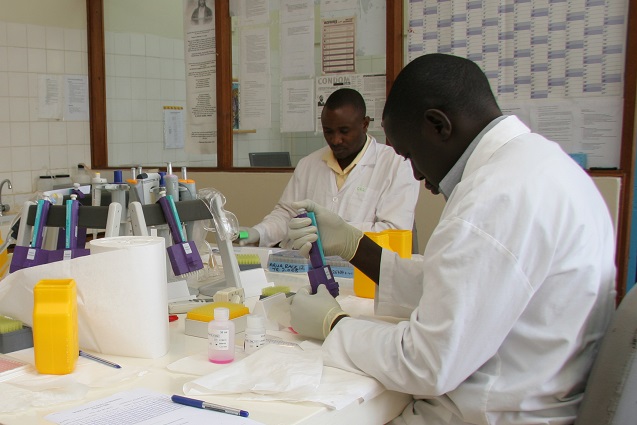Nigeria, Russia are strengthening talks on veterinary vaccine production and livestock development, signaling a potential influx of investment and technology into Nigeria’s agribusiness and animal health sectors. The collaboration aims to modernize livestock farming, improve animal health, and support Nigeria’s agricultural reform agenda under President Bola Ahmed Tinubu.
In Abuja, Russian Agricultural Attaché Vladimir Efremov, representing Ambassador Andrey Podelyshev, met with Nigeria’s Minister of Livestock Development, Idi Mukhtar Maiha. The meeting focused on expanding bilateral cooperation in veterinary vaccine supply, animal genetics, and technology transfer.
Efremov highlighted Russia’s readiness to support Nigeria in closing its livestock vaccine gap, presenting updated product catalogues from Russia’s Animal Health Centre. He drew attention to several Russian institutions, including the century-old Shchelkovo Biocombinat Vaccine Factory, which have developed affordable and stable vaccines suitable for tropical livestock conditions.
The discussions follow Nigeria’s participation at the Golden Autumn 2025 Agro-Industrial Exhibition in Moscow, where over 40 Nigerian delegates engaged Russian agribusiness firms. The delegation explored partnerships in veterinary solutions, livestock genetics, and farm management technology, creating pathways for future investment and collaboration.
Minister Maiha described Russia as a strategic partner in modernizing Nigeria’s livestock industry. He identified disease control, feed development, and the genetic improvement of indigenous breeds as priority areas for cooperation. He also emphasized that Nigeria’s large livestock population, coupled with an improving investment climate, provides lucrative opportunities for Russian investors in vaccine production, livestock pharmaceuticals, ranching, and cold-chain infrastructure.
Experts say the partnership could have a significant impact on Nigeria’s agribusiness sector, particularly for small and medium-scale enterprises involved in livestock production. Improved access to vaccines and veterinary services could reduce livestock mortality, boost productivity, and lower the cost of animal products, creating ripple effects across the value chain. For entrepreneurs, this presents opportunities to invest in feed production, veterinary clinics, cold storage facilities, and logistics services that support modern livestock farming.
To celebrate six decades of Nigeria–Russia diplomatic relations, Russia will host a diplomatic reception and exhibition on November 25, further highlighting avenues for trade, technology transfer, and investment in the agricultural sector. Analysts suggest that stronger ties could accelerate the growth of Nigeria’s livestock industry, positioning it as a hub for regional animal health and agribusiness innovation










